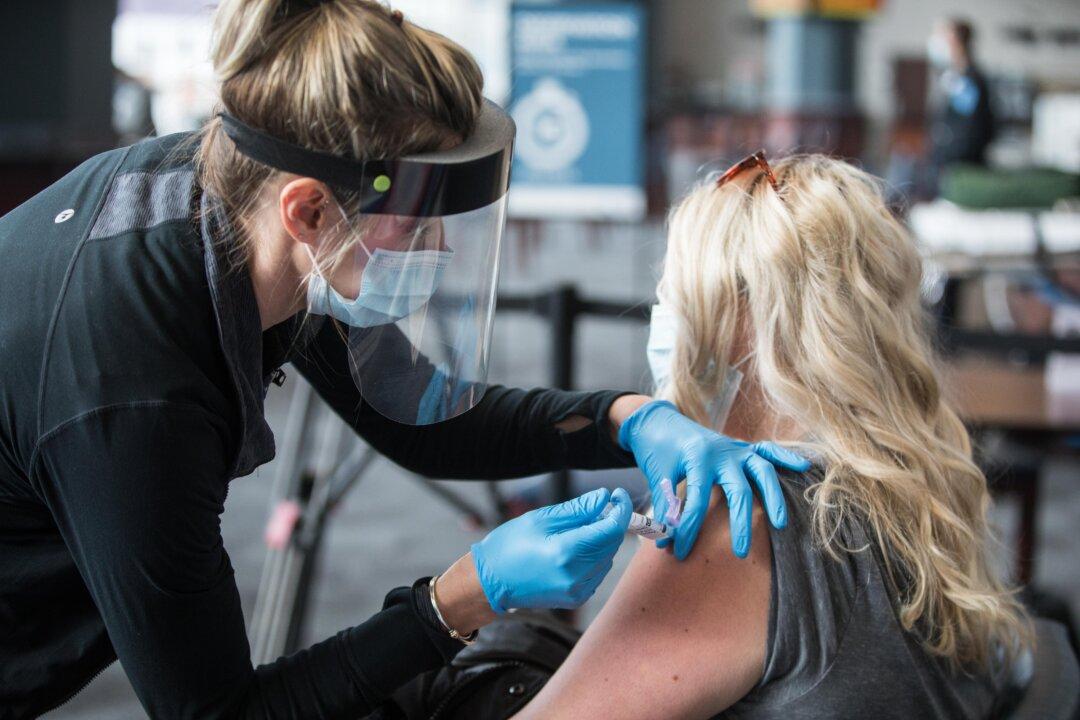Doses of the new CCP virus vaccines can be spaced apart as long as six weeks in some cases, the Centers for Disease and Control and Prevention (CDC) said in new guidance on Friday.
Both authorized vaccines require two doses. Patients typically get the second dose three weeks or a month after the first.





